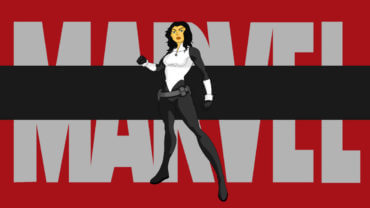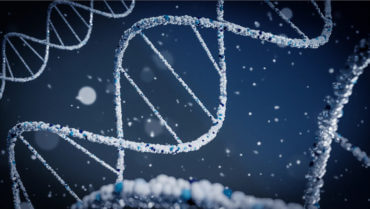
What Broadway’s Harmony Can Teach Us About Living in a Post-October 7 World
I had the privilege of seeing Harmony last night, the final week before the show closes in an unfortunately short run. The production opened in mid-October and is having its last performance on February 4.
While the show was created well before October 7, 2023, it’s almost like the writer knew how deeply the themes and lines would resonate today. Or perhaps, the themes of life as a Jew have never left. They’ve always been relevant and will continue to be until we reach the times of Moshiach.
If you’re not familiar, Harmony — which is a true story — follows a group of singers known as The Comedian Harmonists who became quite famous in the years leading up to World War II. When the Nazis rose to power they were dismantled, both professionally and personally.
There are so many different angles and perspectives the show hits — love, war, hate, friendship, our allies or lack thereof. The six men in the singing group become incredibly close. Their religion doesn’t matter — until it does.
It’s a moving portrait of the fact that deadly constructs set up in this case, by an evil human and subsequent government are nothing more than just ideas. Unfortunately, when people believe them, when they buy into false narratives, destruction occurs.
We’re living in an age where so many people are buying into fake news, false numbers, listening to a terror organization above a people simply trying to exist in peace. There’s no rationalizing and it can feel incredibly helpless.
There’s one character in the show, Ruth (played by Julie Benko) who from the start is trying to fight against everything the Nazis stand for. They all keep saying “it will blow over.” We know it doesn’t. We know her actions won’t matter, yet her determination, her grit as she fights for a cause feels good.
Ruth couldn’t have, and didn’t obviously stop the Nazi regime from rising to power. As one person, I can’t bring the hostages home, make people believe the Jews are good or ensure that I will be safe.
It’s frightening. There were multiple times throughout the show I was in tears over the pain, the fear that it was to live a Jewish life then, that it is now. Then, the non-Jewish woman in the show, Mary (played by Sierra Boggess), asks her love interest, the Rabbi, who is one of the singers in the group to find the section in the Torah where the story of Ruth is.
She is the one who points to the passage where Ruth says to her mother-in-law, Naomi, “Wherever you go, I will go.” This turns into the most beautiful song in the show, in my opinion. Mary sings to the Rabbi that no matter what happens, they will stick together.
Harmony’s Ruth is married to one of the group’s non-Jewish members. He won’t stand up to the Nazis with her and it’s causing strife in their marriage where they’re at the point of breaking up. She turns the song and its meaning around and says to him, “I feel sorry for you. You think it ends here…you take Ruth, and the truth where you go.”
–
This week, we read Parshat Yitro. The entire parsha, one in which we receive the Ten Commandments (pretty big stuff) is instead named after Moshe’s non-Hebrew father-in-law. Why?
In the parsha, he is introduced as an idol-worshiper, yet it becomes clear that he is actually quite righteous.
He was the father of seven daughters who took care of Yitro’s sheep. When a bullying shepherd tried to drive their sheep away, Moshe is the one who came to their rescue. The daughters went home and Yitro was dismayed that they didn’t bring him home with them for supper as a thank you. He told them to immediately go back and get him so he could show his gratitude.
He didn’t stop there though. He gave his own daughter, Tziporah, to Moshe as a wife when he realized how special Moshe was himself. Rebbitzen Esther Baila Schwartz explains that Tziporah was the perfect shidduch (match) for Moshe. Firstly, her name means bird. Birds are not earthly creatures, rather, they fly above. They see things in this world from that birds-eye view.
That was Tziporah. She was able to look at the bigger picture, to know that this world was not the end goal. Rather, this world just leads to the next which is a much bigger and brighter place, the ultimate world of truth. She didn’t get stuck in the muck and confusion of the present-day realities.
It’s easy to get caught up in this world. It makes sense, of course. This is the world we live in, the only world we know. But when we feel helpless, we can go higher. The only thing that brings me out of that muck is remembering that God has a plan and this is part of it, even if I don’t fully understand.
I think the line, “Where you go, I will go,” can also be a love song about sticking with Hashem. Ultimately, a life filled with immense meaning is one when we’re the closest to Hashem, when we truly live with Him in our everyday lives, when we feel His presence next to us. That’s how we get through the fear.
How do we do that? By acting like Yitro — living a life where we feel as if every gift to us is abundance. Yitro was known as an idol-worshiper yet ended up joining the Jews in the desert when we received the Torah. He knew truth when he saw it. He knew goodness, and most importantly, he knew how to appreciate it and open his eyes to it to create a life of meaning.
When you live life as if everything you receive is a gift, you become happier, you feel closer to Hashem and you feel in control again of your own choices.
There are chayalim (soldiers) that have lost limbs, that suddenly don’t have the ability to walk. There are of course, so many others that have lost their lives. There are hostages waiting to come home, some without arms. Rachel Goldberg, mother of Hersh Goldberg-Polin just spoke that when she thinks about her son in captivity, she thinks about how when he comes home — God willing — he will have to navigate a new life without one of his limbs. It sounds so simple, sounds so trite amidst all of this, but even having all of our limbs is a blessing, it’s not a given. Everything is something to be grateful for.
While we don’t know what will happen in this world, we can be in control of our actions, our thoughts and our beliefs as much as possible. Yes, negativity will creep in, that’s natural, but the only thing we can do to fight is to fight.
Whatever opportunities we have here to speak the truth, to do kindness for others, to love our loved ones, to give within our homes, to give outside of them, to say a nice word, to not let fear and anxiety rip us apart is a moment that makes this world better.
When Jew hatred around us rises, we can love each other more, and stick together in a way that makes us all stronger. We can go where Hashem tells us to go, we can follow Him in all he guides us to do. Maybe it’s not a coincidence that we get the Ten Commandments in the same parsha in which we meet Yitro. Both Yitro and the Ten Commandments demonstrate guidelines in how we should live in the most honest, beautiful way.
Those choices, our mindset — as we’ve learned from many Holocaust survivors — are the only things no one else can take away from us.
If you found this content meaningful and want to help further our mission through our Keter, Makom, and Tikun branches, please consider becoming a Change Maker today.







